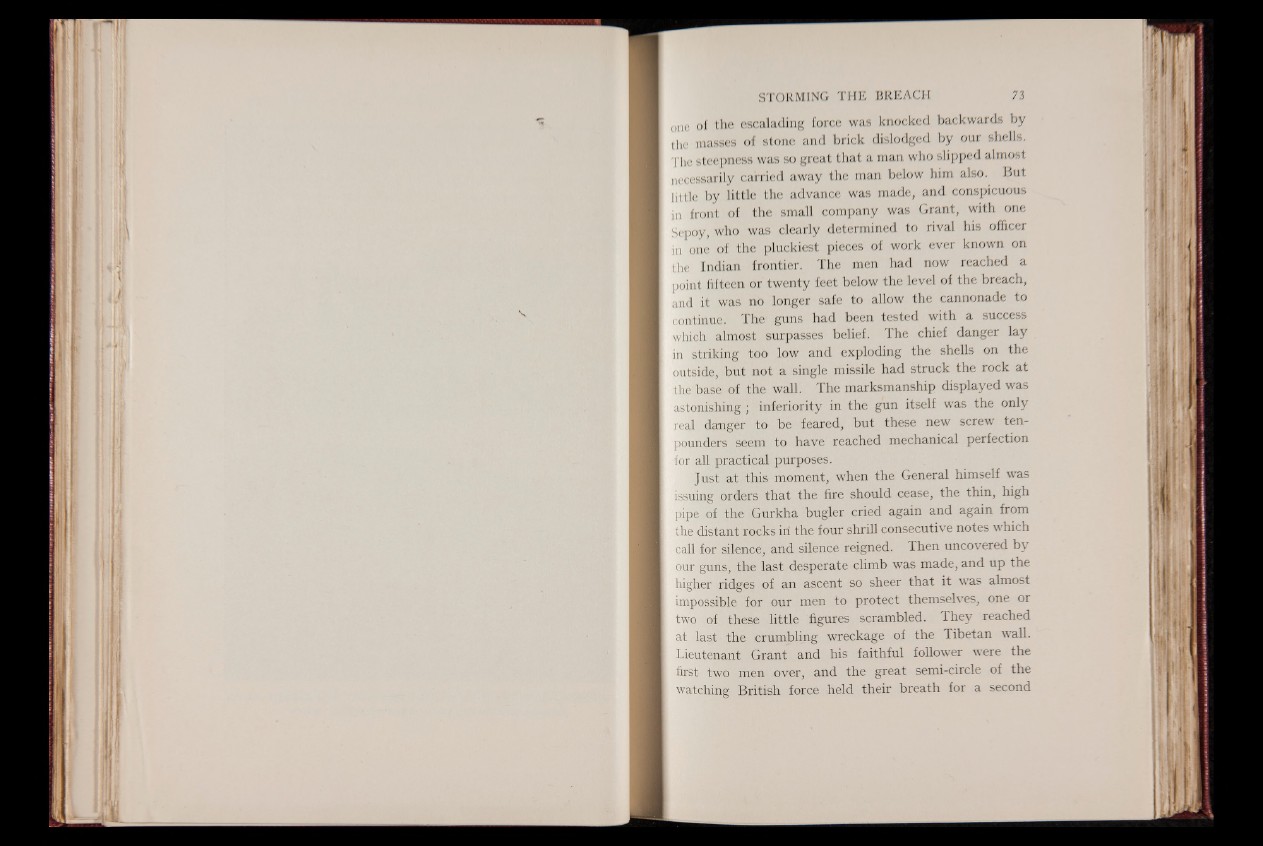
ItL
STORMING THE BREACH 7 3
ono of the escalading force was knocked backwards by
the masses of stone and brick dislodged by our shells.
The steepness was so great that a man who slipped almost
necessarily carried away the man below him also. But
little by little the advance was made, and conspicuous
in front of the small company was Grant, with one
Sepoy, who was clearly determined to rival his officer
In one of the pluckiest pieces of work ever known on
the Indian frontier. The men had now reached a
point fifteen or twenty feet below the level of the breach,
and it was no longer safe to allow the cannonade to
continue. The guns had been tested with a success
which almost surpasses belief. The chief danger lay
in striking too low and exploding the shells on the
outside, but not a single missile had struck the rock at
the base of the wall. The marksmanship displayed was
astonishing ; inferiority in the gun itself was the only
real danger to be feared, but these new screw ten-
I pounders seem to have reached mechanical perfection
for all practical purposes.
Just at this moment, when the General himself was
issuing orders that the fire should cease, the thin, high
pipe of the Gurkha bugler cried again and again from
the distant rocks iri the four shrill consecutive notes which
call for silence, and silence reigned. Then uncovered by
our guns, the last desperate climb was made, and up the
higher ridges of an ascent so sheer that it was almost
impossible for our men to protect themselves, one or
two of these little figures scrambled. They reached
at last the crumbling wreckage of the Tibetan wall.
Lieutenant Grant and his faithful follower were the
first two men over, and the great semi-circle of the
watching British force held their breath for a second